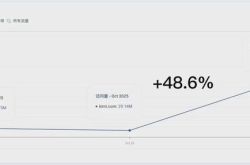Who will be the next Zhang Yiming?
![]() 10/21 2024
10/21 2024
![]() 688
688
The birth of a great enterprise is often accompanied by the rejection of short-term interests.
Written by | Huashang Taolue Danan
In 2010, the boss of a startup tweeted: "The response speed of iPhone1 is too slow and too time-consuming, but switching to an Android phone can't use the software I've already purchased, and Apple's iPhone4 is too expensive, so I'm hesitating whether to buy it or not."
The company he founded was called 99fang, which was then in a difficult start-up phase, struggling to make ends meet. If he had continued, today's Beike Find a room (a real estate platform) might have been the ceiling for this company, but he didn't continue.
In 2011, he resigned as CEO of 99fang and started his fifth venture.
Five years later, Ma Huateng extended an olive branch to him, and rumors of Tencent's acquisition of the company were rife. He had to come forward to respond: "Recently, a colleague solemnly told me that his purpose in joining the company was not to become a Tencent employee. Of course, neither am I. How boring."
This person who found iPhone4 too expensive and rejected Ma Huateng is called Zhang Yiming.
[Dare to say "No"]
Two months after Zhang Yiming rejected Ma Huateng, Douyin emerged.
The history of China's Internet industry has therefore added a bold and vigorous stroke. If Zhang Yiming had chosen Ma Huateng back then, there might not be today's world's largest unicorn with a valuation of 1.56 trillion yuan.
However, Zhang Yiming, who "rejected the big boss and became the big boss," soon tasted the bitterness of rejection himself. The young man who rejected him was Cai Haoyu.
In the same year that Zhang Yiming left 99fang, in the D32 dormitory of the Minhang campus of Shanghai Jiao Tong University, Cai Haoyu, Luo Yuhao, and Liu Wei, three tech geeks, founded miHoYo Studio.
Nine years later, this company born in a university dormitory created the first Chinese game with world-class cultural output power, "Genshin Impact."
"Genshin Impact" soared to second place on China's best-selling list on the first day of its open beta, coming close to Tencent's "Honor of Kings."
On the first day of its launch, it even entered the TOP 20 of Japan and South Korea's best-selling lists and landed on the TOP 10 of the US iOS best-selling list the next day.
In 2020, less than half a year after its launch, "Genshin Impact" generated revenue of up to 8.5 billion yuan, which pushed miHoYo's total revenue for the year to exceed 10 billion yuan.
Such impressive results attracted ByteDance.
At this point, ByteDance had already emerged as one of the new giants, occupying two of the three major monetization models in the Internet: advertising, e-commerce, and gaming. It had built an advertising platform through its headline-based traffic products and was leveraging Douyin to leverage its e-commerce segment, but gaming had not yet been deeply explored. Therefore, ByteDance needed to complete the "gaming" piece of the puzzle.
To fill this gap, Zhang Yiming's first thought was to buy, which was the underlying logic behind his extending an olive branch to miHoYo.
According to media reports, ByteDance offered an acquisition valuation of up to 10 billion USD, which was undoubtedly a huge temptation for miHoYo and its founders, who had been worried about survival just a few years ago.
But Cai Haoyu rejected the offer.
Moreover, it was not just a rejection of Zhang Yiming.
Almost simultaneously, miHoYo also caught Tencent's attention. Tencent's main business is gaming, accounting for more than one-third of its revenue at the time, making it the world's largest gaming company in terms of revenue. Supporting this achievement is a huge user base and super-connective products such as WeChat, followed by continuous acquisitions.
Moreover, for Tencent, if an up-and-coming gaming company cannot be integrated into its ecosystem, it is often seen as a potential rival.
Established giants often share this attitude and concern towards startups founded by rising stars.
When asked what his greatest fear was, Bill Gates once replied, "My greatest fear is those young people tinkering with new ideas day and night in a broken garage."
Therefore, Tencent was determined to acquire miHoYo, even going so far as to compromise and eventually settle for just an equity stake.
But Cai Haoyu rejected the offer, turning down both the acquisition offer and investment, not even accepting a 1% stake.
[Full of confidence]
Behind miHoYo's rejection of ByteDance and Tencent lies not only the company's absolute confidence in its business but also an implicit reason related to its founding aspirations.
miHoYo did not Exclusion of capital from the start but had once struggled to find investors.
miHoYo's first funding came in the form of a 100,000 yuan interest-free loan from the Shanghai Science and Technology Entrepreneurship Center, along with a 50-square-meter office for six months.
As time passed, the 100,000 yuan start-up fund was quickly exhausted, and miHoYo found itself in a difficult situation. The team pinned its hopes on turning the cash flow positive with the launch of its product.
In September 2011, miHoYo's first game, "Fly Me 2 The Moon," was launched, but it did not achieve the expected popularity. Over a month, it was downloaded only 3,000 times, which was not a good result.
To save expenses, Cai Haoyu and his two partners each took a monthly salary of 4,000 yuan while working tirelessly. As top graduates of Shanghai Jiao Tong University, it was inevitable that they would feel demoralized compared to their classmates who earned over 10,000 yuan a month right out of college.
Later, recalling this experience, co-founder Liu Wei lamented, "At that time, the team was very confused and could barely see the direction of the industry. We were almost at the end of our rope and decided to give it one more year. If there was still no improvement, we would disband."
Under such circumstances, seeking external investment became a lifeline for miHoYo.
Although the investment community was interested in Cai Haoyu's "prestigious university entrepreneurship" label at the time, they could not see the development prospects of the anime industry, and miHoYo was repeatedly rejected by capital.
Of course, some investors offered to invest, but on the premise that miHoYo would develop fast-money-making pay-to-win games, which would mean giving up on their product dreams.
At that time, Cai Haoyu chose to stick to his guns and not compromise.
"Creating truly top-tier Chinese games" has always been the team's belief, just as unshakable as miHoYo's slogan, "Tech geeks save the world."
To uphold this belief, the team must remain independent, unconstrained by anyone and unfettered by money.
From this experience, one can glimpse the real reason behind Cai Haoyu's rejection of Tencent and ByteDance: miHoYo wants absolute control over its game content. It didn't compromise back then, and it certainly wouldn't now.
Just as miHoYo was on the brink of a cash flow crisis, a turning point emerged in the form of a man named Song Tao.
Although Song Tao's name is not widely known, he is far from an obscure figure. As the founder of Skyee Network, he holds many "firsts."
As early as 2005, Song Tao founded a company to enter the mobile internet industry, leading his team to develop the first mobile software platform fully developed by China. Skyee Network also became the first Chinese mobile internet company to be listed in the United States.
Perhaps Song Tao saw similarities between Cai Haoyu's team and his own – both dared to be the first to try new things and were willing to pay any price for their dreams. So, he invested 1 million yuan in miHoYo, taking a 15% stake.
Song Tao was the first and only investor in miHoYo.
After that, miHoYo never took any more investments.
Twelve years later, miHoYo ranked 12th on the Hurun Global Unicorn Index, and Cai Haoyu became the richest person in Jinan with a net worth of 73.8 billion yuan.
Song Tao's initial investment of 1 million yuan has also increased in value to 27 billion yuan today.
[Rejecting the big boss to become the big boss]
Looking back, it seems that these stories of business tycoons are all logical and straightforward, but saying "no" for the sake of pursuing one's ideals is not as easy as it seems.
It's like watching a movie. Even if the protagonist suffers a devastating blow and their fate is uncertain, we still watch with peace of mind because we know the protagonist won't die.
But in the real world, everything is uncertain, and no one knows if they are the protagonist or not.
Rejecting an olive branch from a giant comes at a cost.
The business world is like a battlefield. If you don't make friends with the giants, you become their enemy.
In 2009, Drew Houston, the founder of Dropbox, a US cloud storage service, was invited by Steve Jobs, CEO of Apple, to attend a private meeting.
At the time, Apple had become the absolute top dog in the tech industry due to the success of the iPhone, while Dropbox was just a startup.
Jobs offered to buy Dropbox for 800 million USD.
When Houston explicitly rejected the offer, Jobs' face darkened. "I know what you're up to," he said. "Dropbox is just a feature, not a product. If Dropbox doesn't join Apple, I'll crush you with iCloud!"
Facing Jobs' "threat," Houston didn't back down. Taking Dropbox public was his dream, and he had to stand firm.
But when a giant a hundred times your size, your once-idolized entrepreneur, tells you to your face that they will stop at nothing to "kill" you, it must be a mixed bag of emotions.
And when you reject a cash-out offer, your opponents may not just be the giants but also your co-founders, investors, employees, family members, and various voices of doubt.
In a speech, Mark Zuckerberg revealed that in the early days of Facebook, when things were tough, several companies offered to acquire it. Both co-founders and investors accepted the acquisition offers, but Zuckerberg vetoed them.
After a heated argument, an authoritative advisor solemnly warned him, "If you don't sell Facebook now, you'll regret it for the rest of your life."
Amidst the doubts and dissatisfaction of everyone around him, Zuckerberg became isolated.
The famous Wechsler's Law, proposed by economist Irving Janis, states that even if you have your own opinion on something, if ten of your friends have opposing views, it's hard not to waver.
One can imagine how torn Zuckerberg must have been at the time, but fortunately, he withstood the pressure and didn't sell Facebook.
In many cases, choosing to pursue your ideals means killing the opportunity for others in your team, including co-founders, investors, employees, and even family members, to cash out. If you don't have an extremely strong will, it's easy to waver.
Fortunately, it turned out that Houston and Zuckerberg made the right choices.
Dropbox went public in 2018 with a market value exceeding 12 billion USD, and Houston's personal wealth exceeded 2 billion USD. Zuckerberg, on the other hand, sits atop a social networking empire worth 1.5 trillion USD, making him one of the wealthiest people in the world.
Looking through the history of global entrepreneurship, one finds that top entrepreneurs are dissatisfied with the status quo. They always feel that the existing industry ecosystem is not good enough or cool enough, and they strive to subvert and transform it with idealism. This strong desire for a better future sustains them and prevents them from falling into the trap of instant gratification. As Zhang Yiming said, "It's too boring to be a Tencent employee." He has bigger things to do. Only with a dream in your heart and light in your eyes can you find your way forward.
[Go big or go home]
Rejecting the big boss to become the big boss is not limited to the above cases.
Jen-Hsun Huang once rejected AMD's acquisition of NVIDIA;
Larry Page once rejected Microsoft's "recruitment" of Google;
Ding Lei rejected Lei Jun's offer of 10 million yuan when NetEase was just one year old;
Robin Li rejected Google's lucrative buyout offer just before Baidu's IPO;
Dong Mingzhu shouted, "China needs its own brand!" when Carrier offered to buy Gree for 900 million USD. She rejected the 80 million USD annual salary offered and worked tirelessly to preserve Gree's "Chinese identity."
Similar stories have been unfolding continuously, both in China's business world and across the ocean in Silicon Valley.
An interesting characteristic of Chinese tech companies is their fondness for using animals as logos: cats, dogs, penguins, kangaroos, ants...
This is like a vast ecosystem with rich species and free competition, vividly illustrating the essence of a market economy.
Whenever a new species emerges, giants often come sniffing around, leaving entrepreneurs with a choice:
Press on for their dreams or cash out and be done with it?
This tests whether one's original aspirations are still intact and what their ultimate goal in entrepreneurship truly is.
Those who hold fast to their dreams and refuse to waver in the face of enormous benefits, even if they fail, deserve respect.
Because with them, the world has the potential for underdog comebacks rather than the same old story of big fish eating little fish.
Flashing back to 2016, Zhang Yiming recommended a song under his tweet rejecting Tencent. The song's title was "Go Big or Go Home," which translates to "either go for it big or don't bother at all."
When an ambitious entrepreneur faces a massive financial incentive and says "No!," the world may gain another true entrepreneur – the next, and the next after that, Zhang Yiming.
——END——
Welcome to follow [Huashang Taolue] to meet influential figures and read legendary tales of strategy.
All rights reserved. Unauthorized reproduction is prohibited.
Some images are sourced from the internet.
If there is any infringement, please contact us for removal.







